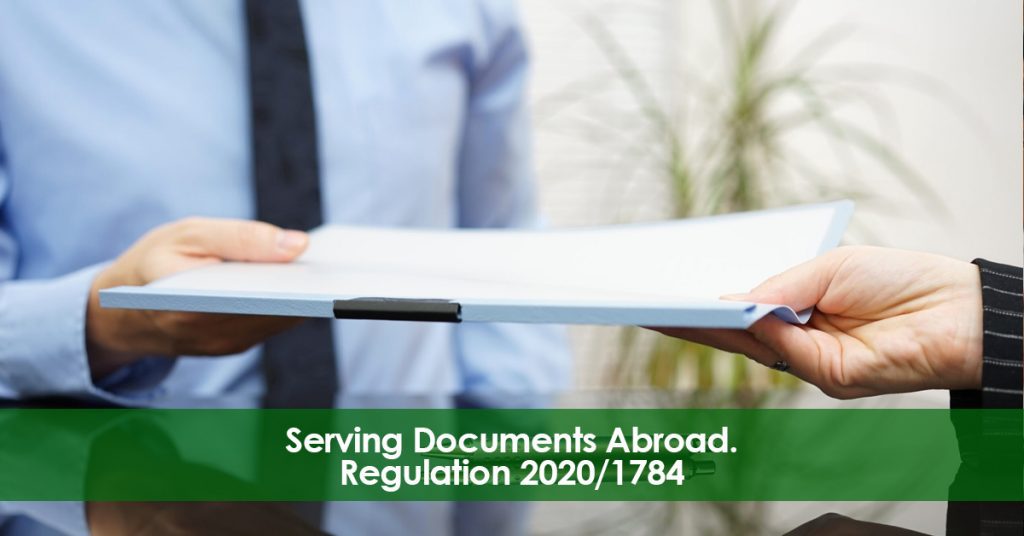Over the years, the European Parliament has issued numerous regulations to promote cooperation and the smooth functioning of relations between the countries of the Union. We have analysed some of them in the past (Regulation 655/2014, Regulation 1215/2012, etc.) In today’s article we focus on a very interesting tool for serving documents abroad: Regulation 2020/1784.
Entry into force of the Regulation and objectives.
Regulation 2020/1784 on the Service of Documents entered into force on July 1st, 2022, with the purpose of improving and speeding up the transmission of documents between EU countries, thanks to the new technologies. It aims to facilitate, for example, the notification of a lawsuit filed before the Spanish courts, to a person located in another EU country.
Material and territorial scope of application, entry into force, etc.
It applies to all EU countries (including Denmark, which confirmed its commitment in December 2020). However, this Regulation will only be used for serving judicial and extrajudicial documents in civil and commercial matters. The notification of tax, customs, or administrative documents, falls outside the scope of this Regulation.
Competent transmitting and receiving authorities in each country.
Each member state must appoint the competent authority to deal with the submission and reception of these documents. A list of the transmitting and receiving agencies designated by each country can be found in the European e-Justice Portal Search Engine. In Spain, both the transmission and reception of these documents is entrusted to the “Letrados de la Administración de Justicia”.
How does the notification system work in practice?.
The first step is to provide the competent transmitting agency with all the documents to be notified. Applicants must also attach “Standard Form A” (included in Annex I of the Regulation). This form must include all the details necessary to conduct the notification: transmitting and receiving authority, address of the recipient, document to be notified, etc. Depending on the country, this form may be submitted in one language or another. For example, in Spain, Standard Form A can be submitted in English, French, Portuguese and Spanish.
Is it compulsory for the documents to be notified to be apostilled and translated?.
According to Art. 8.3, when serving documents abroad there is no need for them to be legalised or apostilled. However, the situation is not the same for the translation. The documents to be served must be in a language understood by the addressee, or in the official language of the country in which service is done. Otherwise, the recipient may refuse to receive the documents, within 2 weeks, on the condition that he or she does so in writing.
Conclusions
The decentralised, secure, and reliable electronic system foreseen by the Regulation (e-CODEX) is not expected to enter into force until May 2025. Therefore, we will have to wait until that date to be able to take advantage of all the benefits that this new regulation brings with it for serving documents abroad.
The notification of documents (lawsuits, summons, etc.) is one of the most important parts of any process. At White-Baos Abogados we are experts in Legal Claims in real estate law, contracts, banking law, insurance, etc. Do not hesitate to contact us. We will study your case and offer you expert advice.
The information provided in this article is not intended to be legal advice, but merely conveys information related to legal issues.
Carlos Baos (Lawyer)
White & Baos.
Tel: +34 966 426 185
E-mail: info@white-baos.com
White & Baos 2022 – All Rights Reserved.
